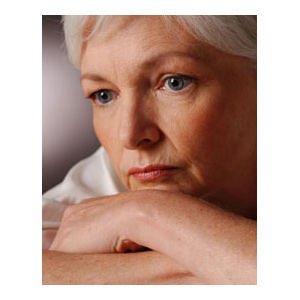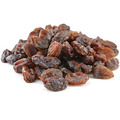Ask the doctor: night sweats
Read expert medical advice on the menopause with doctors' questions and answers from Prima and Best

Read more of our magazine doctors' questions and answers, on 25 health topics
I’m past the menopause by three years but have started to sweat at night. It’s a drenching sweat that makes me stick to the sheets. I am also irritable. What’s going on?
Night sweats should not be ignored. The menopause is an obvious cause but you are past that. Medication can be the reason – in particular anti-depressant medication – blood pressure pills or even medicine you take to lower your temperature. Infections can also cause drenching night sweat, especially abscesses, infections in the bones, malaria or TB. Night sweats are also a symptom of an overactive thyroid. Excessive alcohol consumption or recreational drug taking can cause sweating. If you are a diabetic, night sweats may be down to low blood sugar. Anxiety is another culprit, so if you have stress or worry this may be taking its toll. See your GP, who will do a blood test and possibly ask for an X-ray and urine sample. Mention other symptoms to your doctor, such as weight loss, coughing or lethargy.
Dr Pixie McKenna, Best (Jan 13)
Since reaching the menopause, I have developed an itchy scalp. Can you suggest anything to help?
Itchy scalp can be caused by a condition known as seborrhoeic dermatitis. This produces itchiness, scaliness and flaking, and affected skin often looks red and inflamed. It is thought to be triggered by a hypersensitivity to skin yeast. Shampooing with Nizoral (£9.49 for 100ml, Boots), which contains the anti-fungal agent ketoconazole, usually works well. General measures to reduce skin itching and flaking include taking evening primrose oil supplements and eating more oily fish, nuts and seeds for their essential fatty acid content. You should also consider taking a good vitamin and mineral supplement designed for those over the age of 50.
Dr Sarah Brewer, Prima (Jan 13)
Lately my husband is constantly tired, moody and has no interest in sex. He’s 52 and has always been good-humoured. I thought he may be depressed but his doctor has now put him on testosterone, saying he’s having a sort of menopause. Surely this can’t be the cause?
About 20% of men over 50 suffer from low testosterone levels. It’s sometimes termed Andropause, so yes, it is male menopause and often goes undiagnosed and treated. Symptoms include erectile dysfunction, loss of libido, tiredness, moodiness, irritability, insomnia, poor memory, hair loss, and weight gain around the middle. It’s sometimes put down to depression, but clearly his GP ran tests and has discovered low testosterone. This is treated with testosterone replacement (just like HRT), usually prescribed in gel form to be rubbed onto the skin, but may also be given via injection. Be patient as it may take up to three months to see an impact. And don’t worry – boosting testosterone will only get him back to his old self, and not make him aggressive.
Dr Pixie McKenna, Best
I’m 52, and two years into the menopause. I can’t take HRT as I have high blood pressure. My male hormones seem to be kicking in because I have loads of hairs on my chin. Plucking isn’t helping, so I’ve started shaving – but I’m getting ingrowing hairs. Are there other options?
Laser treatment is an option if you want a permanent solution. It works best on dark hair. It’s not a one-hit wonder, though, so you’ll need several sessions. It’s not cheap, either, and can result in burns to the skin or patches of discolouration. Generally, though, if it’s successful, it’s bye-bye beard. Another option is the prescription cream eflornithine, which you apply to your skin. It is used twice a day and works by chemically slowing the growth of the hair. You can usually see a significant effect within eight weeks, and after a year 80 per cent of women are hair free. If you stop using the cream, however, your facial hair will start to regrow.
Dr Pixie McKenna, Best
I went through the menopause two years ago at the age of 46. But recently I’ve been bleeding and my doctor says I need urgent referral. He won’t give me a straight answer when I ask if it’s cancer. How worried should I be?
Postmenopausal bleeding – technically any bleeding more than a year after your last period – is one of the most common reasons for women
to be referred to gynaecologists. You should definitely have tests to rule out cancer (usually of the womb lining) but, fortunately, in about 90% of cases there is a far less worrying cause. I would refer patients for a single episode of heavy bleeding, or for light bleeding that goes on for a month or more. Many hospitals offer a ‘one-stop shop’ where you get an assessment and the main investigations at the same appointment. You will have an ultrasound to check out your womb and ovaries. If the womb lining is more than 5mm thick, you’ll have a sample taken for analysis. One of the most common causes is a non-cancerous polyp on the cervix, which can be removed the same day.
Dr Sarah Jarvis, Good Housekeeping (Dec 11)
I’ve started experiencing hot flushes and have a low sex drive. My partner is supportive but I feel I’m letting him down as my doctor won’t prescribe HRT. Isoflavones have helped reduce the flushes. Could I try testosterone?
Some consultants do prescribe testosterone gel for women who have a low sex drive, but it must be balanced with oestrogen so is not suitable if you can’t use HRT. Its use is controversial as the longterm safety in women is unknown. Herbs that have been shown to improve sex drive in women include Muira puama (£10.20 for 60 caps from www.riohealth.co.uk or health-food stores) and Shatavari, a type of asparagus that is widely used in Ayurvedic medicine to improve the symptoms of menopause and increase female libido (£15.45 for 90 caps from www.pukkaherbs.com or health-food stores).
Dr Sarah Brewer, Prima (Apr 11)
I’ve read lots of informative articles in Good Housekeeping about the menopause, but nothing on the ‘second menopause’ that can affect those of us who have come off HRT. Please can you help?
There has been a lot of publicity about the possible link between long-term HRT use and breast cancer, and about two-thirds fewer women take it today than did a decade ago. But you’re quite right to say that many women get menopause symptoms (especially hot flushes) back when they stop taking it. The flushes seem to be linked to fluctuating levels of oestrogen, which fall more quickly when you come off HRT than they do around the menopause. Once they’re at a true post-menopausal low, however, the flushes often stop – usually within a few months of stopping HRT. Red clover isoflavone may help relieve hot flushes in the meantime, and a new study suggests it may also help with the anxiety and low mood that some women suffer during the menopause.
Vaginal dryness doesn’t go away, but for that you could use a topical HRT cream, pessary or vaginal ring, which don’t appear to carry the same risks. Alternatively, the non-hormonal vaginal moisturiser Replens, which you can get from your pharmacist or your GP, may help.
Dr Sarah Jarvis, Good Housekeeping (Sept 10)
After my menopause four years ago, I took HRT for three years. Since I stopped it, the hot flushes haven't come back, but I still get a lot of vaginal dryness. It certainly doesn't put me in the mood for making love with my husband, but I'd rather not go back on HRT. Are there any alternatives?
Hot flushes are one of the most common and troublesome symptoms of the menopause, but they do tend to improve in most women within two or three years after your periods stop. HRT had a lot of bad publicity a few years ago because of a possible link with breast cancer and stroke, but if you use it for two or three years, it's perfectly safe for most women. However, vaginal dryness is related to the natural drop in oestrogen after the menopause, and this is unlikely to change. As well as affecting your love life, it can cause itching, soreness or even vaginal and urine infections, so you're likely to need a longer-term option to help you deal with it. Replens vaginal moisturiser is a non-hormonal cream you apply every few days. It has an excellent safety record and there is good evidence that it works.
Dr Sarah Jarvis, Good Housekeeping (Feb 10)
Read more of our magazine doctors' questions and answers, on 25 health topics
The answers to specific problems may not apply to everyone and are not substitutes for professional medical advice. If you're worried, see your GP. For more information, visit www.netdoctor.co.uk
You might also like...
Beat the heat of a hot flush
Natural menopause remedies
See all of our help and advice on the menopause










